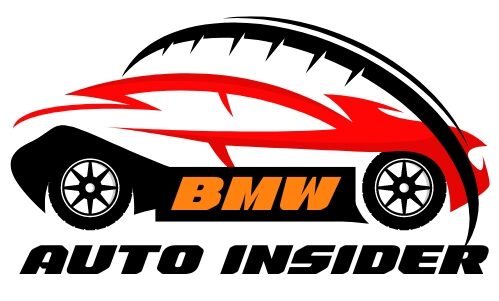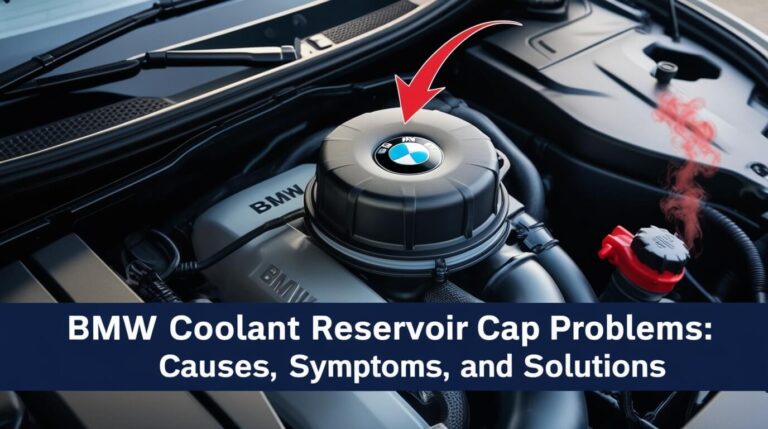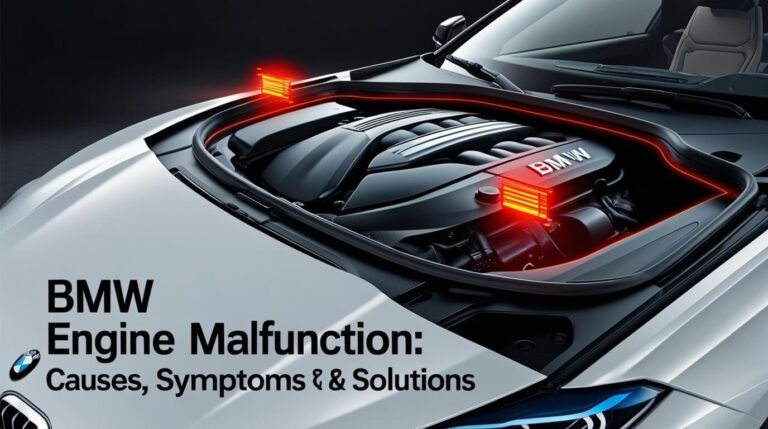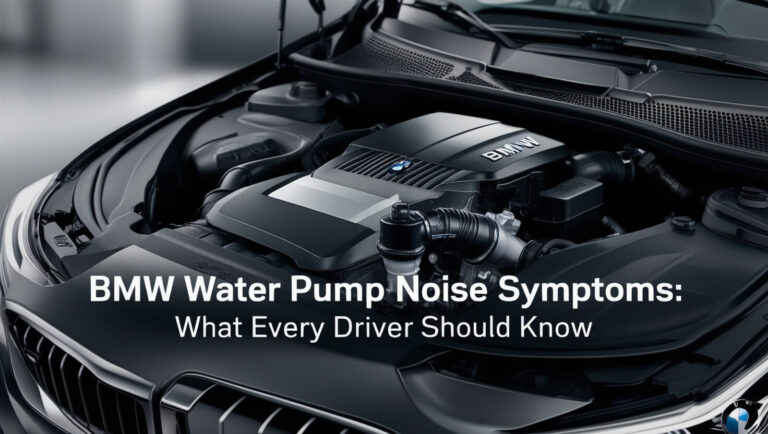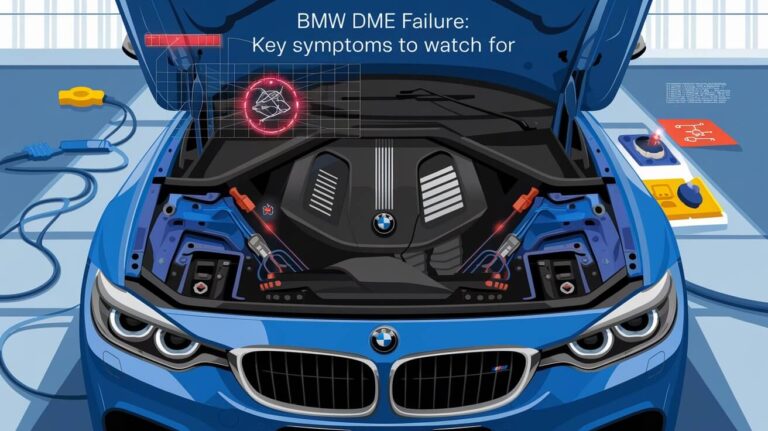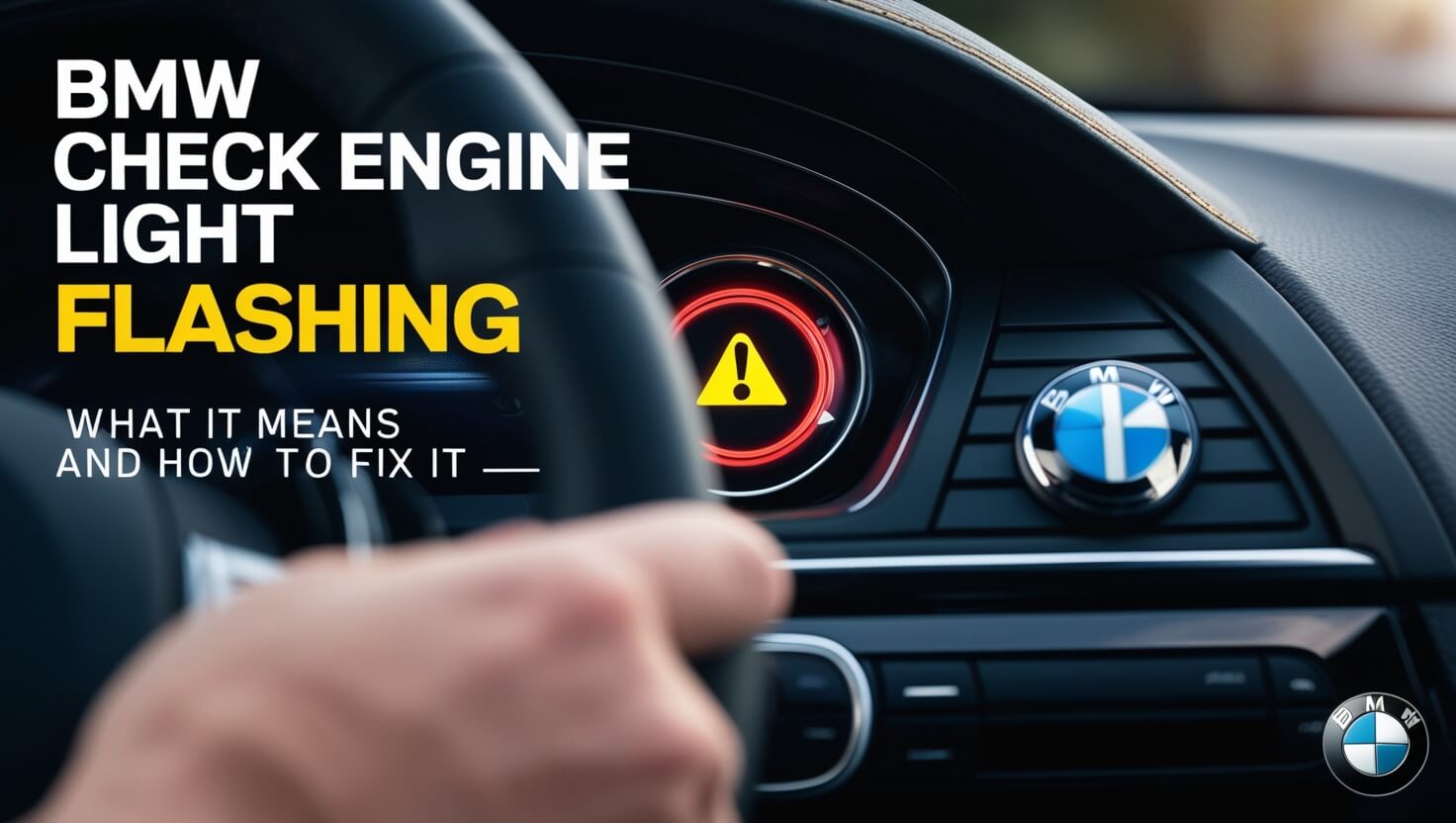
Is your BMW’s check engine light flashing? This urgent warning indicates a serious engine problem that needs immediate attention. While a steady check engine light can sometimes wait, a flashing one means you should stop driving as soon as it’s safe and get your car checked out.
In this comprehensive guide, we’ll explore why your BMW’s check engine light might be flashing, what it could mean for your car, and how to address the issue. We’ll cover common causes, immediate steps to take, diagnosis methods, and potential fixes. We’ll also discuss prevention strategies and the risks of ignoring this critical warning sign.
Understanding the BMW Check Engine Light
Before we dive into the specifics of a flashing check engine light, let’s first understand what this indicator means in general.
Different Types of Check Engine Light Warnings
BMW uses the check engine light, also known as the malfunction indicator lamp (MIL), to alert drivers to various issues with the engine or emissions system. There are two main ways this light can appear:
- Steady light: This usually indicates a minor or moderate issue that needs attention soon but isn’t immediately critical.
- Flashing light: This signals a severe problem that could cause significant damage if not addressed right away.
Why Your BMW’s Check Engine Light May Flash
A flashing check engine light in your BMW typically means one thing: your engine is misfiring severely enough that unburned fuel is entering the exhaust system. This can quickly overheat and damage your catalytic converter, leading to expensive repairs if not addressed promptly.
Common Causes of a Flashing Check Engine Light in BMWs
Several issues can trigger a flashing check engine light in your BMW. Let’s explore some of the most common culprits.
Engine Misfires
Engine misfires are the most frequent cause of a flashing check engine light. A misfire occurs when one or more cylinders fail to fire properly, disrupting the engine’s smooth operation. This can happen due to various reasons, including:
- Worn or fouled spark plugs
- Faulty ignition coils
- Fuel injector problems
- Low fuel pressure
- Vacuum leaks
Faulty Spark Plugs or Ignition Coils
Spark plugs and ignition coils play crucial roles in your BMW’s engine performance. When they fail, it can lead to misfires and trigger the flashing check engine light. Signs of failing spark plugs or ignition coils include:
- Rough idling
- Poor acceleration
- Decreased fuel efficiency
- Engine hesitation
Fuel System Issues
Problems with your BMW’s fuel system can also cause the check engine light to flash. These may include:
- Clogged fuel injectors
- Failing fuel pump
- Low fuel pressure
- Contaminated fuel
Emissions Control Problems
Your BMW’s emissions control system is designed to reduce harmful exhaust gases. Issues with this system can trigger a flashing check engine light. Common problems include:
- Faulty oxygen sensors
- Malfunctioning catalytic converter
- Exhaust leaks
- Issues with the EGR (Exhaust Gas Recirculation) system
Sensor Malfunctions
Modern BMWs rely on numerous sensors to monitor engine performance and emissions. When these sensors fail or provide incorrect data, it can cause the check engine light to flash. Key sensors include:
- Mass airflow sensor
- Crankshaft position sensor
- Camshaft position sensor
- Knock sensor
Immediate Steps to Take When Your BMW’s Check Engine Light Starts Flashing
If you’re driving and notice your BMW’s check engine light start to flash, it’s crucial to take immediate action to prevent potential damage to your vehicle.
Reduce Speed and Load
The first thing you should do is ease off the accelerator and reduce your speed. If you’re carrying heavy cargo or towing, try to lighten the load on the engine as much as possible.
Find a Safe Place to Stop
Look for a safe place to pull over and stop your BMW. This could be a parking lot, a wide shoulder on the road, or any other area where you can safely park your vehicle away from traffic.
Check for Obvious Issues
Once you’ve stopped, turn off the engine and perform a quick visual inspection. Look for any obvious problems like:
- Loose wires
- Visible leaks
- Strange noises
- Unusual smells
While you likely won’t be able to diagnose the problem on the spot, this quick check might reveal something simple like a loose gas cap that could be causing the issue.
Diagnosing the Problem Behind a Flashing Check Engine Light
After you’ve safely stopped your BMW, the next step is to diagnose the root cause of the flashing check engine light.
Using an OBD-II Scanner
An OBD-II (On-Board Diagnostics II) scanner is a valuable tool for diagnosing check engine light issues. Here’s how to use one:
- Locate your BMW’s OBD-II port (usually under the dashboard on the driver’s side)
- Plug in the scanner
- Turn on the ignition without starting the engine
- Follow the scanner’s instructions to read the error codes
Common BMW Error Codes and Their Meanings
While there are hundreds of potential error codes, some are more common in BMWs with flashing check engine lights:
- P0300-P0308: Random/Multiple Cylinder Misfire or Specific Cylinder Misfire
- P0171-P0175: Fuel System Too Lean or Too Rich
- P0440-P0457: Evaporative Emission Control System Malfunction
- P0411-P0419: Secondary Air Injection System Malfunction
When to Seek Professional Diagnosis
While DIY diagnosis can be helpful, certain situations call for professional help:
- You’re not comfortable working on cars
- The problem persists after addressing simple issues
- You don’t have access to the necessary diagnostic tools
- The error codes indicate a complex problem
A BMW specialist or certified mechanic will have the expertise and advanced diagnostic tools to pinpoint the exact cause of your flashing check engine light.
Fixing a Flashing Check Engine Light in Your BMW
Once you’ve identified the problem, it’s time to fix it. The solution will depend on the specific issue causing the flashing check engine light.
DIY Solutions for Minor Issues
Some problems can be resolved without professional help:
- Tightening or replacing a loose gas cap
- Replacing spark plugs
- Cleaning the mass airflow sensor
- Changing the engine air filter
Remember, only attempt DIY repairs if you’re confident in your abilities and have the right tools.
When to Visit a BMW Specialist
For more complex issues, it’s best to seek professional help. A BMW specialist should handle problems like:
- Replacing ignition coils
- Repairing fuel system components
- Addressing emissions system failures
- Fixing sensor malfunctions
Potential Repair Costs
Repair costs can vary widely depending on the issue:
- Spark plug replacement: $150-$300
- Ignition coil replacement: $300-$400 per coil
- Oxygen sensor replacement: $200-$500 per sensor
- Catalytic converter replacement: $1,000-$2,500
Keep in mind that addressing issues promptly can prevent more expensive repairs down the line.
Preventing Future Check Engine Light Issues in Your BMW
While some issues are unavoidable, proper maintenance can significantly reduce the likelihood of a flashing check engine light.
Regular Maintenance Tips
Follow these tips to keep your BMW in top shape:
- Stick to the recommended service schedule
- Change oil and filters regularly
- Keep an eye on fluid levels
- Address minor issues promptly
- Use high-quality fuel
Importance of Quality Parts and Fluids
Using genuine BMW parts or high-quality aftermarket alternatives can help prevent issues. The same goes for fluids – always use the grade and type recommended by BMW for your specific model.
Addressing Minor Issues Before They Escalate
Pay attention to subtle changes in your BMW’s performance. Addressing minor issues early can prevent them from developing into major problems that trigger a flashing check engine light.
The Impact of Ignoring a Flashing Check Engine Light
Ignoring a flashing check engine light can have serious consequences for your BMW.
Potential Damage to Your BMW’s Engine
Continuing to drive with a severely misfiring engine can cause:
- Catalytic converter failure
- Damaged pistons or valves
- Blown head gasket
- Complete engine failure
These issues can lead to repairs costing thousands of dollars or even necessitate engine replacement.
Safety Concerns
A misfiring engine can cause:
- Sudden loss of power
- Stalling
- Unpredictable acceleration
These issues can put you and others on the road at risk.
Effect on Fuel Efficiency and Performance
Even if catastrophic damage doesn’t occur, ignoring a flashing check engine light will likely result in:
- Decreased fuel economy
- Reduced engine performance
- Increased emissions
Frequently Asked Questions About BMW Check Engine Lights
Let’s address some common questions about flashing check engine lights in BMWs.
Can I Drive My BMW with a Flashing Check Engine Light?
No, you should not continue driving your BMW if the check engine light is flashing. This indicates a severe problem that could cause significant damage if not addressed immediately. Find a safe place to stop as soon as possible.
Will the Check Engine Light Reset Itself?
In some cases, a steady check engine light might turn off if the issue resolves itself. However, a flashing check engine light typically indicates a serious problem that won’t resolve on its own. Even if the light stops flashing, the underlying issue likely still needs attention.
How Much Does It Cost to Diagnose a Check Engine Light Issue?
Diagnostic costs can vary:
- DIY with an OBD-II scanner: $20-$100 for the scanner
- Auto parts store scan: Often free
- Professional diagnosis: $50-$200
Many repair shops will waive the diagnostic fee if you have them perform the necessary repairs.
Conclusion: Taking Action on Your BMW’s Flashing Check Engine Light
A flashing check engine light in your BMW is a critical warning that shouldn’t be ignored. While it can be alarming, understanding what it means and how to respond can help you protect your vehicle and ensure your safety on the road.
Remember, the key steps are:
- Reduce speed and load on the engine
- Find a safe place to stop
- Diagnose the problem (or have it diagnosed professionally)
- Address the issue promptly
By staying proactive with maintenance and addressing issues quickly, you can keep your BMW running smoothly and avoid the stress of a flashing check engine light. Don’t hesitate to seek professional help when needed – your BMW’s health and your safety are worth the investment.
